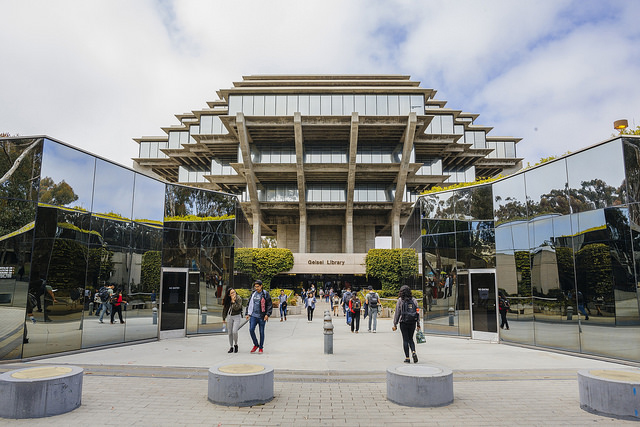Current Courses
This class will be offered next Spring 2025
MED 283 | BNFO 286. Network Biology and Biomedicine (4 Units)
Networks are pervasive in molecular biology and medicine. This course introduces biomolecular networks and their major analysis techniques and roles in biomedical research, including pathway-based genetic analysis. Recommended familiarity with bioinformatics programming; course examples are taught in Python.
Prerequisites: Genetics (BICD100, BGGN 223, BIOM252, or equivalent) and Graduate Level Statistics (MED268, MATH 283, MATH 281A, MATH 281B, MATH 281C, FMPH 221, FMPH 222, or equivalent). Prerequisites may be waived with consent of instructor. Crosslisted as MED 283 and BNFO 286.
Current Syllabus and Overview:
2023 MED283 Syllabus
2023 MED283 Overview
Recorded Lectures and Slides:
2023 Med283 Lectures & Slides
Once enrolled you may view all course materials on https://canvas.ucsd.edu/
Publications and press from this course:
- Press: Classroom crowdscience: UC students challenged to detect schizophrenia genes. Physorg. 24 Apr 2019.
- Carlin DE, Fong SH, Qin Y, Jia T, Huang JK, Bao B, Zhang C, Ideker T. A Fast and Flexible Framework for Network-Assisted Genomic Association. iScience. 2019 Jun 28;16:155-161. doi: 10.1016/j.isci.2019.05.025. Epub 2019 May 24 [PDF] [PubMed]
- Fong SH, Carlin DE, Ozturk K; 2018 UCSD Network Biology Class; Ideker T. Strategies for Network GWAS Evaluated Using Classroom Crowd Science. Cell Systems. 2019 Apr 24;8(4):275-280. doi: 10.1016/j.cels.2019.03.013. PMID: 31022372 [PDF] [PubMed]


Previous Courses
BENG 203. Genomics, Proteomics, and Network Biology Annotating genomes, characterizing functional genes, profiling, reconstructing pathways.
BIOM 262 / BGGN 237. Quantitative Methods in Genetics Quantitative Methods in Genetics is designed to teach experimental and analytical approaches in modern genetics, from experimental design through data analysis in each of several topic areas. The course will use a combination of lectures, demonstrations, and hands-on data analysis.
BENG 183. Applied Genomic Technologies Principles and technologies for using genomic information for biomedical applications. Technologies will be introduced progressively, from DNA to RNA to protein to whole cell systems. The integration of biology, chemistry, engineering, and computation will be stressed. Topics include: Technology for the Genome, DNA Chips, RNA Technologies, Proteomic Technologies, Physiomic and Phenomic Technologies, Analysis of Cell Function. Prerequisite: grade of C– or better in BIMM 100 or Chem 114C; BICD 110; Bioinformatics majors only.
Journal reviews of the course:
- IEEE Transactions on Education (2007) — “Bioinformatics and Proteomics: An Engineering Problem Solving-Based Approach”
- Nature Review Genetics (2010) — A review of next generation sequencing technology.
BENG 160. Chemical and Molecular Bioengineering Techniques Introductory laboratory course in current principles and techniques of chemistry and molecular biology applicable to bioengineering. Quantitation of proteins and nucleic acids by spectrophotometric, immunological, and enzymatic methods. Separations and purification by centrifugation, chromatographic, and electrophoretic methods. Prerequisites : BIBC 102, BICD 100, BENG 100, MAE 170; majors only or consent of instructor.
BENG 187. Bioengineering Design Project: A). Planning 1; B) Development 1 A) Attendance at a weekly planning session on design projects. B) Development of original bioengineering design to solution of problem in biology or medicine. Analysis of economic issues, manufacturing and quality assurance, ethics, safety, government regulations, and patent requirements. Oral presentation and formal engineering reports. Prerequisites : grade of C- or better in MAE 170; BENG 101 or BICD 100; BENG 112A or CENG 101A; BENG 140A or BIBC 102; BENG 186B or BENG 123; Bioengineering or Bioengineering: Biotechnology majors only or consent of instructor.
BENG 202. Bioinformatics II: Sequence and Structure Analysis – Methods and Applications Introduction to methods for sequence analysis. Applications to genome and proteome sequences. Protein Structure, sequence-structure analysis.